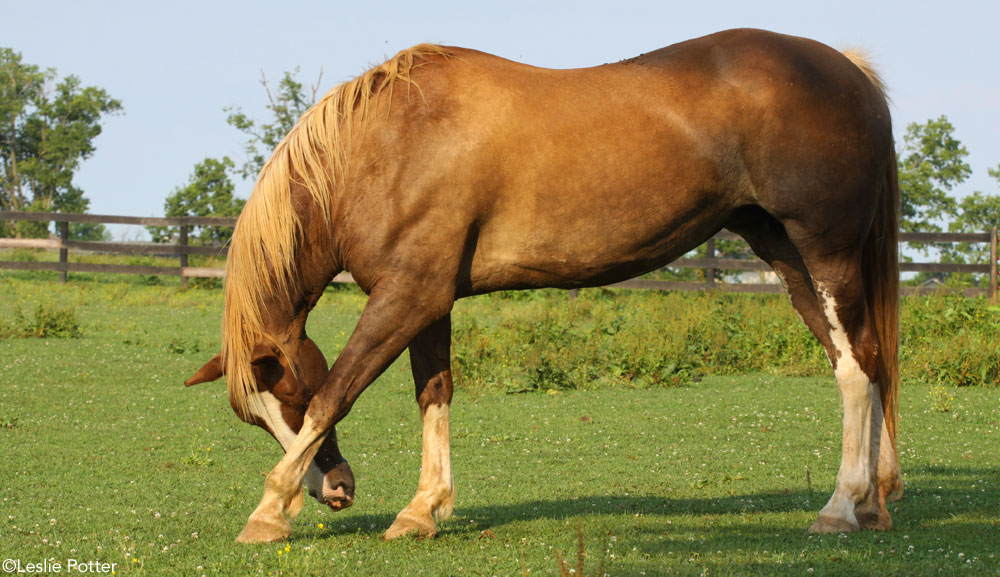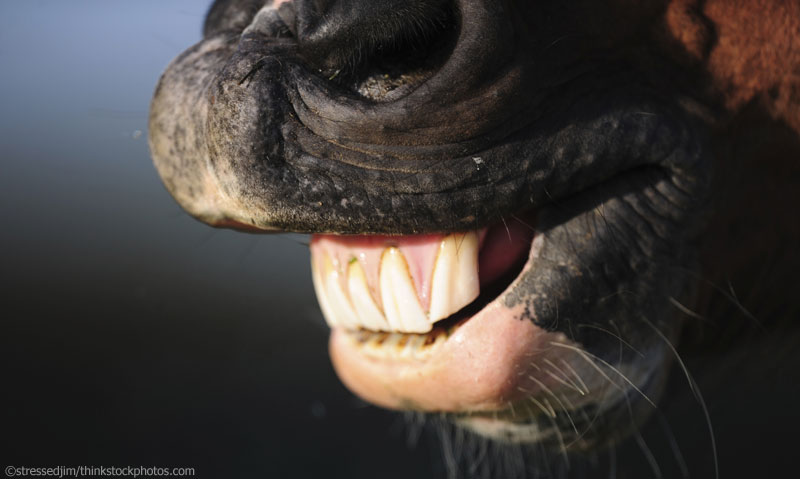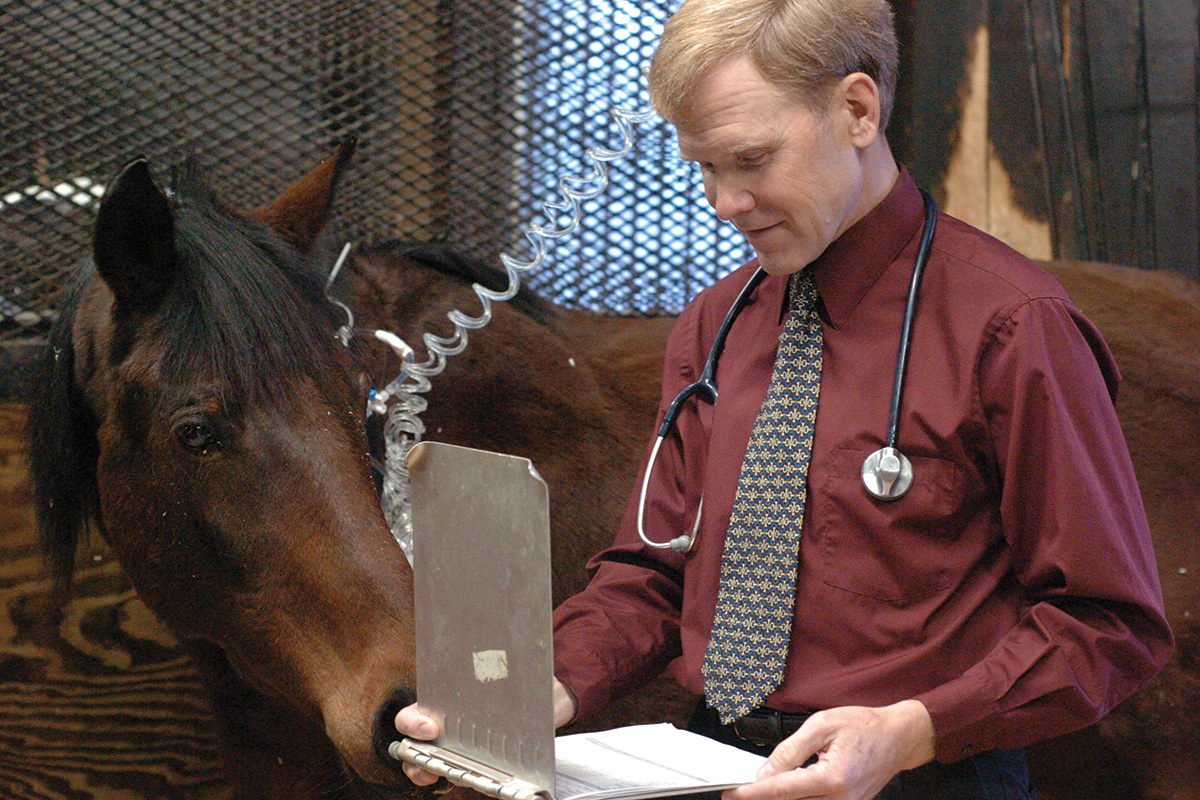In our Ask the Vet column, Dr. Lydia Gray answers your horse-health questions at horseillustrated.com/AskTheVet. Got a question for Dr. Gray? Send it to hc-editor@luminamedia.com and use subject line “Ask the Vet.”
Q: There are a lot of horror stories out there about horse eye injuries. So my question is, what should I do if my horse has an eye injury but the vet can’t come out immediately? How do I protect the eye while I wait for the vet?

A: There are a lot of horror stories out there about horse eye injuries because horse eye injuries can quickly become horrible. And by “horrible” I mean eye-threatening to even LIFE-threatening. Now that I’ve sufficiently frightened you, let’s calmly discuss eye conditions in horses so that you know what to do—and what NOT to do—should one occur in your horse.
First, what does an eye problem in a horse look like? Certainly if you see blood anywhere on the face, call your veterinarian right away. But many horse owners may not know that squinting, tearing, swollen eyelids, or a cloudy or red eye are also emergencies that need immediate care to avoid serious consequences.
Of 20 lectures at next year’s American Association of Equine Practitioners (AAEP) “Focus on Ambulatory” continuing education meeting for veterinarians, 5 are eye-related; this year’s AAEP Annual Convention featured an entire half-day of ophthalmology lectures. That tells you equine veterinarians are pretty concerned about any ophthalmological abnormality in a horse. Here’s a description of one of the upcoming talks, which makes it pretty clear just how serious equine eye conditions are:
A report of a tearing, painful eye with swollen eyelids in a horse should be treated as an emergency and evaluated within 12-hours of discovery by the owner or caretaker. Upon examining the horse, the veterinarian may find a simple, superficial corneal ulcer or a more serious cause of the clinical signs. In this lecture, the clinical signs, diagnosis, and treatment plan in the field of the most common serious ophthalmic emergencies will be presented. Indications of when to refer to a tertiary facility will be discussed, in addition to management of cases in the field that do not have a referral option.
Therefore it’s critical that a veterinarian examine any horse with any issues having to do with the eyes THAT DAY. After you contact your veterinarian and describe the situation, he or she will usually give you some advice about what to do until they arrive, such as:
- Don’t put anything in the eye. What helps in some cases actually makes things WORSE in other cases, so refrain from “pre-treating” the eye with ointment or drops leftover from a previous eye event.
- Protect the face and eye from further trauma. If your horse is used to wearing a fly mask, you may be advised to put one on while you wait. However, this is not the time to introduce headwear, and don’t attempt to place a bandage on the head unless specifically instructed by the vet to do so.
- Keep the horse calm. If you can separate the injured horse from his herdmates without creating undue stress in him or the others, then consider doing so. Hay is a great sedative so be generous with it, but don’t administer an actual sedative (or a non-steroidal anti-inflammatory drug like bute, Banamine, or Equioxx), unless your vet recommends it.
If you live in an area where equine veterinarians are scarce and it could be a long time before the vet can come to you, consider going to them. Whether you’re meeting your usual vet at another barn or hauling directly to the nearest equine hospital, referral center, or even veterinary teaching hospital, you may be able to get a diagnosis and therefore appropriate treatment started sooner. Eye emergencies are something every horse owner will likely have to deal with at some point, and you deserve extra points for planning ahead for that fateful day!
Liked this article? Here are others you’ll enjoy:
Ask the Vet: Keeping Flies out of a Horse’s Eye
Ask the Vet: Senior Horse in a Herd





